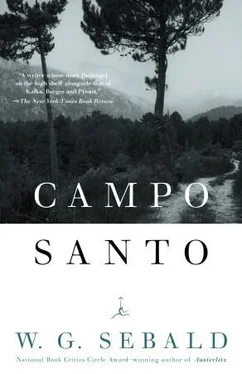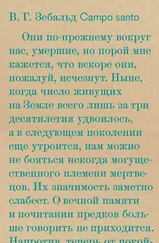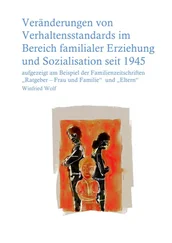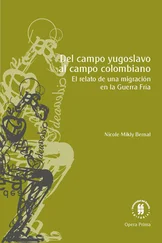In the Corsican newspapers, the so-called ouverture de la chasse (the start of the hunting season) is one of the main subjects of reporting in September, together with the never-ending accounts of the bombing of police stations, local authority tax offices, and other public institutions, and it even casts into the shade the excitement over the start of the new school year which seizes annually upon the entire French nation. Articles are published about the state of the game preserves in the various regions, last season’s hunting, prospects for the present campaign, and indeed hunting in general in every imaginable form. And the papers print photographs of men of martial appearance emerging from the maquis with their guns over their shoulders, or posing around a dead boar. The main subject, however, is the lamentable fact that fewer and fewer hares and partridges can be found every year.
Mon mari , complains the wife of a hunter from Vissavona to a Corse-Matin reporter, for instance, mon mari, qui rentrait toujours avec cinq ou six perdrix, on a tout juste pris une . [5] My husband, who always used to come home with five or six partridges, got only one.
In a way the contempt she expresses for the husband coming home empty-handed from his foray into the wilderness, the indisputably ludicrous appearance of the ultimately unsuccessful hunter in the eyes of his wife, women always having been excluded from the hunt, is the closing episode of a story that looks far back into our dark past, and that even in my childhood filled me with uneasy premonitions.
I remember, for instance, how on my way to school I once passed the yard of Wohlfahrt the butcher on a frosty autumn morning, just as a dozen deer were being unloaded from a cart and tipped out on the paving stones. I could not move from the spot for a long time, so spellbound was I by the sight of the dead animals. Even then the fuss made by the hunters about sprigs of fir, and the palms arranged in the butcher’s empty white-tiled shopwindow on Sundays, seemed to me somehow dubious. Bakers obviously needed no such decorations.
Later, in England, I saw rows of little green plastic trees hardly an inch high surrounding cuts of meat and offal displayed in the shopwindows of “family butchers.” The obvious fact that these evergreen plastic ornaments must be mass-produced somewhere for the sole purpose of alleviating our sense of guilt about the bloodshed seemed to me, in its very absurdity, to show how strongly we desire absolution and how cheap we have always bought it.
All this was going through my head again one afternoon as I sat at the window of my hotel room in Piana. I had found an old volume of the Bibliothèque de la Pléiade in the drawer of the bedside table, and I began to read Flaubert’s version of the Legend of Saint Julian, which I had not known before, that strange tale in which an insatiable passion for hunting and a vocation for sainthood do battle in the same heart. I was both fascinated and disturbed by the story, which in itself I approached with reluctance.
Even the episode of the killing of the church mouse, an explosion of violence in a boy who until that moment had always behaved well, got under my skin most uncomfortably. We are told that Julian, waiting by the mousehole, gave the creature a small tap and was taken aback to see that its little body had stopped moving. A drop of blood stained the flagstones. And the longer the story went on, the more blood there was. Time after time, the crime must be masked by another kind of death. The pigeon brought down by Julian with his sling lies twitching in a privet bush, and as he wrings its neck he feels his senses faint with pleasure. As soon as he has learned the art of the chase from his father, the urge comes over him to go out into the wilderness. Now he is forever hunting wild boar in the forest, bear in the mountains, deer in the valleys or out in open country. The animals take fright at the sound of the drum, hounds race over the hillsides, hawks rise in the air, and birds drop like stones from the sky.
The huntsman comes home every evening covered with mud and blood, and so the killing goes on and on until, one icy cold winter’s morning, Julian goes out and, in a daylong frenzy, strikes down everything moving around him. Arrows fall, we are told, like rain beating down in a thunderstorm. In the end, night comes, the sunset is red among the branches of the forest like a cloth soaked with blood, and Julian leans against a tree with his eyes wide open, looking at the vast extent of the slaughter and wondering how he can have done it. He then falls victim to a paralysis of the soul, and begins his long wanderings through a world which is no longer in a state of grace, sometimes in such blazing heat that the hair on his head catches fire of its own accord in the glow of the sun, at other times in cold so icy that it breaks his limbs. He refuses to hunt anymore, but sometimes his terrible passion comes over him again in his dreams; he sees himself, like our father Adam, surrounded by all the creatures in the garden of paradise, and he has only to reach out his arm and they are dead. Or he sees them passing by in pairs before his eyes, beginning with aurochs and elephant and going on all the way to the peacocks, guinea fowl, and ermine as they looked on the day when they entered the Ark. From the darkness of a cave he hurls darts that never miss their mark, yet more and more follow without end.
Wherever he goes, wherever he turns, the ghosts of the animals he has killed are with him, until at last, after much hardship and suffering, he is rowed by a leper across the water to the end of the world. On the opposite bank, Julian must share the ferryman’s bed, and then, as he embraces the man’s fissured and ulcerated flesh, partly hard and gnarled, partly deliquescent, spending the night breast to breast and mouth to mouth with that most repellent of all human beings, he is released from his torment and may rise into the blue expanses of the firmament.
Not once as I read could I take my eyes off this utterly perverse tale of the despicable nature of human violence, a story that probes horror further with every line. Only the act of grace when the saint is transfigured on the last page let me look up again.
Evening twilight was already darkening half of my room. Outside, however, the setting sun still hung above the sea, and in the blazing light that rippled from it the whole of that section of world visible from my window quivered, a view unspoiled by the line of any road or the smallest human settlement. The monstrous rock formations of Les Calanques, carved from granite over millions of years by wind, salt mist, and rain, and towering up three hundred meters from the depths, shone in fiery copper red as if the stone itself were in flames, glowing from within. Sometimes I thought I saw the outlines of plants and animals burning in that flickering light, or the shapes of a whole race of people stacked into a great pyre. Even the water below seemed to be aflame.
Only as the sun sank beneath the horizon was the surface of the sea extinguished; the fire in the rocks faded, turned lilac and blue, and shadows moved out from the coast. It took my eyes some time to become accustomed to the soft twilight, and then I could see the ship that had emerged from the middle of the fire and was now making for Porto harbor so slowly that you felt it was not moving at all. It was a white yacht with five masts, and it left not the slightest wake on the still water. Although almost motionless, it moved forward as inexorably as the big hand of a clock. The ship was moving, so to speak, along the line dividing what we can perceive from what no one has ever yet seen.
Far out above the sea, the last gleam of daylight faded; inland, the darkness was gathering closer and closer, until the lights on board the snow-white ship showed against the black heights of Capo Senino and the Scandola peninsula. Through my binoculars I saw the warm glow in the cabin windows, the lanterns on the superstructure of the deck, the sparkling garlands of light slung from mast to mast, but no other sign of life at all. For perhaps an hour the ship lay there at rest, shining in the dark, as if its captain were waiting for permission to put in to the harbor hidden behind Les Calanques. Then, as the stars began to show above the mountains, it turned and moved away again as slowly as it had come.
Читать дальше












